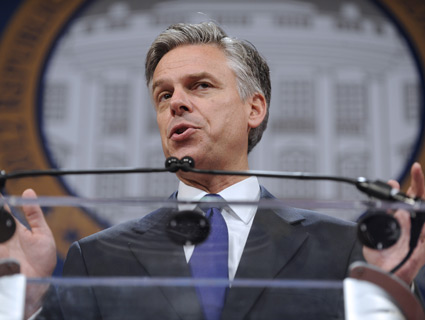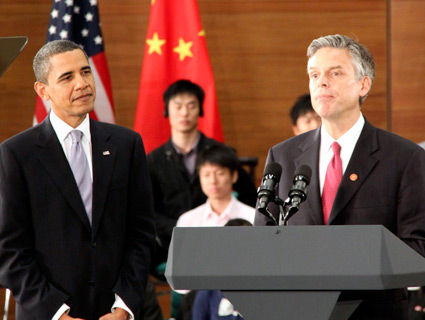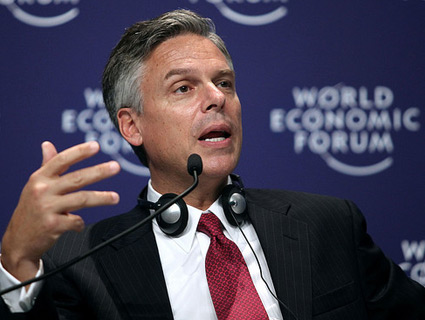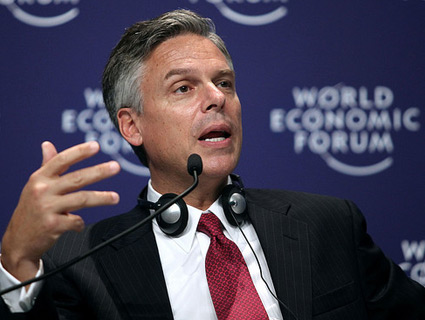
2012 GOP presidential candidate Jon Huntsman.Zhang Jun/Xinhua/ZUMA Press
During Monday’s Lincoln-Douglas style debate between front-runner Newt Gingrich and back-runner Jon Huntsman, the former Utah governor was asked about the United States’ volatile relationship with Pakistan. Huntsman asked the audience to think back to the early 1970s, when America’s alliance with Pakistan was more reliable and sturdy. “It was Pakistan that helped open the way to China,” Huntsman said, before going on to praise the partnership between then-National Security Advisor Henry Kissinger and Pakistani President Yahya Khan. Returning to this baseline of friendship with the Pakistani government would be part of Huntsman’s grand strategy of “remind[ing] the world once again what it means to be a friend and ally of the United States.”
Sounds swell, right? With the way things have been going lately, who wouldn’t want to get back to an era when Pakistan actually assisted the United States in major foreign policy wins?
What Huntsman neglected to mention in his description of that period in US-Pakistan relations is that Gen. Yahya Khan was a genocidal leader who orchestrated an indiscriminate campaign against Bengali civilians during the 1971 Bangladesh war of independence. Casualty estimates range in the hundreds of thousands (with higher estimates clocking in at three million deaths) and the operation was labelled by one top-ranking American official at the time as “the most incredible, calculated thing since the days of the Nazis in Poland.” Kissinger—predictably—looked the other way because Khan was a key interlocutor in arranging President Nixon’s 1972 visit to China. “[General Khan] hasn’t had so much fun since the last Hindu massacre,” Kissinger said during a closed meeting in 1971.
Obviously, Huntsman was not citing mass murder and ethnic cleansing as indications of a solid bond between the two nations. It is, however, rather peculiar for the Republican candidate to hold up such a dark chapter in Pakistani history as an example of sunnier days. It’s likely that Huntsman was simply taking a page from the realpolitik handbook, while banking on the safe assumption that few, if any, listeners were aware of this complex, brutal episode of the Bangladesh Liberation War and Nixon’s “opening” to China.















